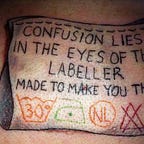#66DaysofData or #N+1DaysofCoding
Before I begin, a note to future self that I am largely enjoying all elements of this learning curve but the documenting of it. I may regret committing this to digital paper, but blogging my learning curve is killing my enthusiasm and momentum with learning.
I have committed to documenting this process, if only to better understanding how, why and where I bail on projects like these. Perhaps with additional practice, I will grow to like this step more?
Let’s get caught up on the process to date. A definitive streak has yet to persevere beyond a week. Tradeoffs with fitness, work and family result in me taking at least a day a week away from the process. After reviewing the data, I am doing away with the commitment to every day. I will continue to strive for it, but the data denotes that there are multiple goals and pre-existing commitments. To be frank, I am not willing to give this learning curve that level of priority at the moment.
To celebrate — progress continues with Automate The Boring Stuff with Python. I am on the Regular Expressions module and pleased with the steady progress. I am making connections and understanding code that makes me wonder what the Kaggle courses will be like when I return to #66DaysofData after this 101 effort at Python for the basics.
I would endorse both the book as well as the videos to anyone looking for a starting place with coding and zero previous experience. The videos, in particular, are easily digestible and I code along with the author to further reinforce the lessons.
I also attended a Python for machine learning and data science workshop that was organized by the brilliant humans behind Halifax’s chapter of Women in Machine Learning and Data Science. Ah-mazing group of humans who deliver a ton of value through moderated speakers and workshops.
The win for me with this workshop was the connections I was making from my 101 coding efforts with tools (hello again Jupyter Notebooks) to technical approaches (e.g. classification). This was the first time where I began to believe that I might actually turning a corner and putting larger pieces of the different elements of this learning curve together.
This workshop also got me thinking about a setup and approach to working that helps to balance the discipline needed to acknowledge and stay in a white belt mentality.
Finally, I recently finished a book I received over the holidays, Democratizing our Data: A Manifesto by Julia Lane. This book outlines an argument for re-thinking the current approach to national statistics. The need for new data skills, new data architecture and new data products was the boost I needed to renew my energy for this work. if you are playing in the data space, I highly recommend adding this book to your reading list.
I may or may not achieve a level of knowledge and technical proficiency of a data scientist. I have yet to decide if this is the direction I want to pursue*. However, the combination of learning, workshops, and reading that I have undertaken in the last two weeks has re-enforced my theory that some technical proficiency (even for policy work) is exponentially valuable.
*the available data I have available on time spent coding as well as a lack of interest in returning to formal academics for another graduate degree would suggest that a data scientist path is unlikely. The data would also suggest that a career trajectory in professional blogging is less likely. :)
